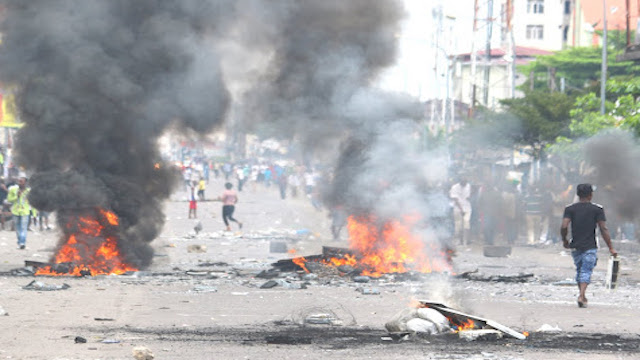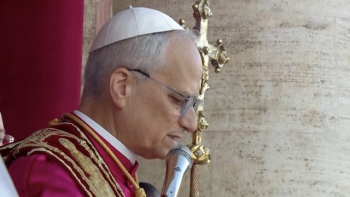Anti-Kabila protests across Democratic Republic of the Congo (DRC) have turned violent. The protests in the capital Kinshasa, today on December 20, 2016, has led to tens of civilians killed by Joseph Kabila's Republican guard and the police. In other areas, including the cities of Lubumbashi, in Katanga Province, and throughout Eastern parts of the country, Joseph Kabila's army and police have been shooting at civilian protestors with automatic weapons, leaving a trail of death and destruction.
Even before the end of the two-term presidency of Joseph Kabila, as allowed by the constitution, Congolese people had vowed to protest to force Joseph Kabila, now considered as illegitimate, from power. On Monday, December 19, 2016, disaffected troops rebelled in Mwanda, in the region of Kasai-Occidental, 97 miles from Kananga, the capital of Kasai-Occidental, and 405 miles from Kinshasa. In spite of the unrests, the newly appointed Prime Minister, Samy Badibanga, announced a cabinet government composed of 68 ministers, immediately rejected by the opposition. The Security forces suspended social media and banned the broadcasts by foreign medias in DRC.
In reaction, the veteran opposition leader, Etienne Tshisekedi, posted a message calling on the population to resist: "I launch a solemn appeal to the Congolese people to not recognise the... illegal and illegitimate authority of Joseph Kabila and to peacefully resist [his] coup d'etat".
His message was not available in DR Congo, where authorities have restricted access to social media networks, the AFP news agency reports.
Early in the morning of December 20, 2016, protesters in Kinshasa and in the major towns around the country took it to the streets chanting slogans against Joseph Kabila and saying that they no longer recognized him as the president.
In Kintambo, a residential area in the Lukunga district of the capital Kinshasa, police mutineers shot at other police officers, loyal to Joseph Kabila, and attempted to seize the studios of the government television, RNTC, before the Republic Guard intervened. The police mutineers withdraw to other areas of the Lukunga district.
In Lubumbashi, a video received by AfroAmerica Network shows the military shooting at armed civilians. The civilians, then, started throwing stones at the military. The military troops shot back with live ammunitions, apparently killing some.
DR Congo, like many countries in the region, including Rwanda, Uganda, Burundi, Republic of the Congo, Cameroon, Equatorial Guinee, and Angola are ruled by dictators. These dictators have refused to transfer power, and instead have changed the constitutions of their countries in order to remain in power. Most of these countries have never had a democratic or peaceful transfer of power since independence from colonial powers in 1960s.
Joseph Kabila took power in 2001 following the assassination of his father Laurent Kabila. He promised a democratic change, that never came. In September 2016, his security forces massacred hundreds of civilian protesters.
Others dictators in the region came to power through violence or assassination, promised to step down after a few terms, but ended up changing their constitutions. Among these are Ugandan Yoweri Museveni, Rwandan Paul Kagame, Republic of Congo Sassou Nguesso. Burundian Pierre Nkurunziza's interpretation of the constitution has led to on-going violences.

















